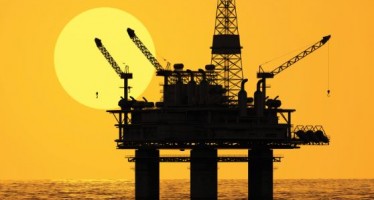Greece: Attack of the Merchants of Doom Fails to Impress

Martin Schulz
President Martin Schulz of the European Parliament (EP) arrived in Athens today to read the riot act, before the Greek government does something it may come to regret. Mr Schulz travelled with a sizeable entourage of journalists to ensure the widest possible coverage of his expedition. The EP president is expected to urge Prime-Minister Tsipras to slow down some.
In particular, Mr Schulz wants the prime-minister to reconsider the termination of the privatisation drive he ordered on his first day in office. The sale of state-owned corporations is part of the bailout agreement Greece agreed to in 2010. The new government has now abruptly halted the sell-off of the Port of Piraeus, the Public Power Corporation, and the Hellenic Petroleum refinery amongst other assets such as power grids, motorways, and airports.
The government also rehired the cleaning ladies fired late last year from the Ministry of Finance. It is not clear if Mr Schulz will object to this decision as well. During his stay in Athens, the EP president will also meet the leaders of the defeated political parties, including former Prime-Minister Stavros Papandreou whose Movement of Democratic Socialists failed to win a single seat in Sunday’s parliamentary elections.
OMG
Yesterday, markets went near-berserk as the Tsipras Administration unveiled its first anti-austerity measures. The rating agencies – as ever stalwart protectors of financial propriety – promptly downgraded the country’s economic outlook from stable to negative. Investors, scarcely in need of prodding, voted with their feet and inundated their stockbrokers with sell orders. In a few hours of trading, banking shares lost almost 26% of their value. The overall market was down by 9.6%. The interest rate on the Greek five-year bond shot up to 15% – the highest level since 2012.
“The sale of state-owned corporations is part of the bailout agreement Greece agreed to in 2010.”
Predictably, most European creditor and guarantor nations issued stern warnings that Greece should not expect any debt write-offs or other favours. German Economy Minister Sigmar Gabriel frostily remarked that the Greek government should perhaps have discussed the cancellation of the privatisation programme with its partners: “Citizens of other euro states have a right to see that the deals linked to their acts of solidarity are upheld.”
Meanwhile, US President Barack Obama called up Prime-Minister Tsipras to offer American (moral) support. However, the Chinese were somewhat less impressed now that its state-owned port administrator and shipping company COSCO may no longer take over the Port of Piraeus.
Chinese media, taking their cue from the Beijing government, cautioned the Greek prime-minister against becoming a real-life Phaeton – the unruly son of Helios who was allowed to drive the sun chariot for a day but failed to control the horses and put the earth in danger of being burnt up, forcing Zeus to intervene with a well-placed thunderbolt – killing the young god.
Mythological considerations aside, as the Greek government seeks to honour its electoral promises – a tell-tale break with tradition – Prime-Minister Tsipras and Finance Minister Yanis Varoufakis now try to reassure the wider world that their administration is not looking to pick a fight. However, Messrs Tsipras and Varoufakis have also made it clear that they will not be boxed in.
In a sign that both touchy markets and panicky international players overreacted to developments, Greek banking stocks on Thursday bounced back as bargain hunters stepped in. As reason prevailed, the benchmark ATG Index gained 1.4% in a relatively calm day of trading.
Expressing Confidence
Daniele Nouy, who chairs the European Central Bank’s Supervisory Board, expressed confidence in the strength of Greek banks to survive the crisis. Deputy Prime-Minister Giannis Dragasakis insinuated that his government would not allow banks to collapse and assured that the “proper functioning of banks” is a concern shared by all members of the cabinet.
What most doomsayers fail to realise is that the Tsipras Administration seems doggedly determined to restore a measure of hope to the nation. The soothing of jittery investors’ nerves is no longer the priority. However, even without allowing for debt-relief, there is plenty to negotiate about.
The new government has already suggested it will want to reduce the unrealistic primary surpluses it is required to run to more manageable, and reasonable, proportions. This would free-up significant sums for policy measures aimed at encouraging economic growth and lessening social want. Prime-Minister Tsipras stated, quite correctly, that such a change would not involve the country reverting to its spendthrift ways: “We will keep our budget in balance and seek to help the weakest sectors of society while battling cronyism, corruption, and waste.”
You may have an interest in also reading…
UBS CEO Ralph Hamers: Understated Efficiency in Minding the Bottom Line
On Monday, 2 November, Ralph Hamers (53) will take the exclusive side entrance of UBS Group’s imposing head office on
PwC: Nigeria – Prosperity Beyond Oil
PwC recently published a report in conjunction with the Lagos State Chamber of Commerce and Industry (LCCI) on the key
A One-Day Commitment for a Lifetime of Freedom
The gateway to a Greek golden visa in just one day? Emelia Beeson reports on a rapid route to the















































































